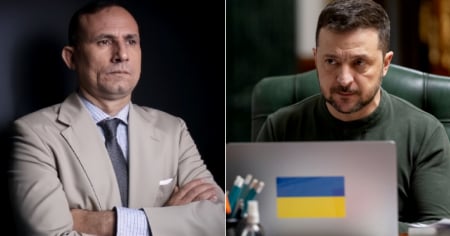In a recent intervention at the Conservative Political Action Conference (CPAC), Richard Grenell, a prominent foreign policy advisor to President Donald Trump, emphasized a significant shift in the international doctrine of the current administration.
Grenell emphasized that, unlike the Republican strategies of the last two and a half decades, Trump's approach focuses on strengthening the United States without intervening in the regimes of other countries.
"Donald Trump has done something different from what Republican foreign policy leaders have done for 25 years. We do not engage in regime change. We will deal with the countries that are in front of us, and our criterion is not how we make that country better, but how we make the United States better, stronger, and more prosperous for the people who live here," Grenell stated during his speech at CPAC.
This statement aligns with recent actions by the Trump administration that reflect a more pragmatic and less interventionist foreign policy.
A notable example is Grenell's visit to Venezuela in January 2025, where he met with President Nicolás Maduro. Although the United States has historically taken a confrontational stance toward the Venezuelan government, the meeting focused on the release of six American citizens detained in that country, without seeking a regime change.
Moreover, the administration has taken measures that reinforce this approach. In February 2025, President Trump suspended U.S. foreign aid for 90 days, with the aim of reevaluating and aligning international assistance with national interests.
This decision was interpreted by experts as a move to avoid directly influencing the internal affairs of other nations, and was criticized by activists who saw its potential favoring of dictatorial regimes.
The appointment of Senator Marco Rubio as Secretary of State also reinforces this strategy. Known for his firm stance against authoritarian regimes, Rubio has, however, stated that foreign policy will focus on promoting the interests of the United States, avoiding direct interventions to change foreign governments.
This shift in U.S. foreign policy has generated various reactions within the international community. While some allies appreciate the focus on direct diplomacy and non-intervention, others express concern about the potential decrease in U.S. support in conflicts where it has traditionally played an active role.
In summary, the Trump administration is redefining U.S. foreign policy, prioritizing prosperity and national security over intervention in the internal affairs of other countries, thus marking a significant departure from previous strategies.
This approach is not limited to Latin America. Recently, President Trump has avoided labeling Russian President, Vladimir Putin, as a dictator, arguing that he prefers to keep communication channels open with Moscow to address shared global challenges.
Furthermore, in a recent vote at the United Nations, the United States opposed a resolution condemning the Russian invasion of Ukraine, a stance that has surprised many of its Western allies and has been interpreted as a shift in the country's national security doctrine.
This distancing from traditional allies is also evident in Trump's criticisms of the European Union, accusing it of economically exploiting the United States and threatening to impose new tariffs on European products.
In the realm of human rights, the Trump administration has decided to withdraw the United States from the UN Human Rights Council, citing a supposed bias against American interests.
These actions reflect a foreign policy that prioritizes immediate national interests over traditional alliances and multilateralism, redefining the role of the United States on the global stage.
Filed under:
